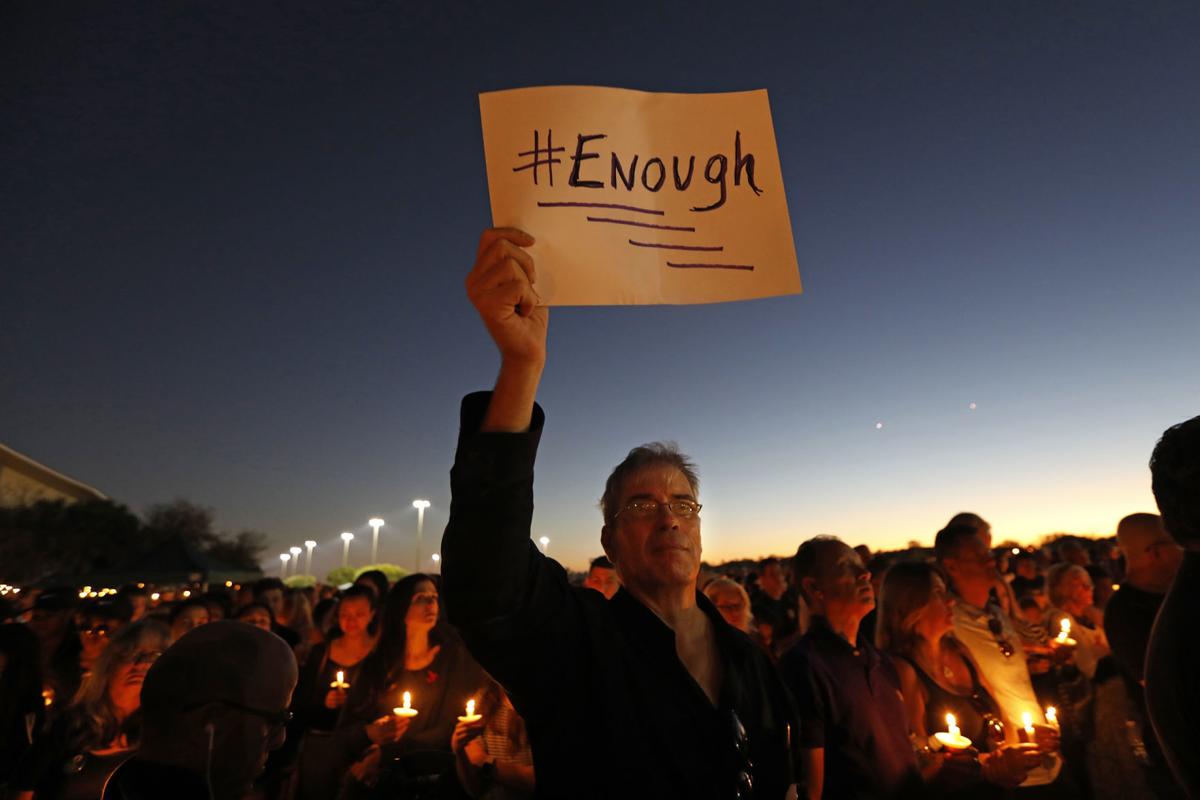Seventeen people were shot to death at a Florida high school on Wednesday. Teenagers, teachers, coaches, staff members — murdered by an expelled student wielding a semiautomatic AR-15 assault-style rifle he bought legally.
The tired pseudo-conversation that follows these all-too-frequent shootings has kicked into high gear, as it does every time children are slaughtered at school:
Blame easy access to weapons designed to kill as many as possible as quickly as possible. Blame holes in the mental health care system. Blame the politicians who won’t do a damn thing to slow down, much less stop, this public health emergency.
There is no single cause for the deadly and familiar and singularly American phenomenon of murdering children in the places they’re supposed to be learning about books and art and math and science, instead of learning what to do when their school becomes a live-ammunition shooting gallery and they become the prey of a murderer with a high-capacity firearm.
The victims aren’t only those who are shot to death. Those who survive their wounds will live with physical damage and scars forever.
The psychological and emotional damage isn’t visible, but it can be even more potent.
One of the most striking responses to this horror in Florida is the recognition that the ritual of shock and grief and blame has become routine, as well as the hopelessness it creates.
Since 20 first-graders and six adults were murdered with an assault rifle at Sandy Hook Elementary School on Dec. 14, 2012, the U.S. has experienced at least 239 more school shootings.
According to data compiled by the New York Times, 438 people were shot in those attacks, and 138 of them were killed.
Florida Gov. Rick Scott unintentionally summed it up when he spoke to reporters Wednesday night.
He was speaking about the shock and unfathomable pain so many families were experiencing, describing them as “All the individuals who unfortunately had to go through this experience.”
No one has to go through this experience. The inertia and cowardice of those with power — specifically, elected officials — make them accomplices to the carnage. It’s not possible to stop every bad thing from happening, but that doesn’t justify giving up.
Too many in Congress haven’t been brave enough to do anything more than offer their meaningless thoughts and prayers. It’s worse than that, however.
A year ago, President Trump signed a bill that revoked a change President Obama had put into place after Sandy Hook. The change would have added the names of about 75,000 people who receive Social Security checks because of mental illness, and those who have been determined unable to manage their own financial affairs, to the national database licensed gun dealers use to clear a person who wants to buy a firearm.
Mass shootings — whether they happen at a school, in front of a grocery store, at a movie theater, at a factory or an office — are a public health emergency.
Gun violence is a crisis of national security from within our own borders. It’s a terror we are inflicting on ourselves.
If this were almost any other kind of threat, we would face it head on. We would study it, solve it. We would fight it and not stop until it was licked.
But, because of federal rules, we can’t even do that. We’re trying to prescribe fixes without knowing the true spectrum of the problem. We don’t have the current and indepth research needed to better understand what prompts a person to reach for guns and bullets to solve a problem.
We call on Congress, especially the Arizona delegation, to demonstrate even a modicum of decency and lift the rules on using federal funds to rigorously study mass shootings and all aspects of gun violence.
Asking questions shouldn’t require an act of political bravery, but when it comes to guns, it does. We must end the plausible deniability of ignorance.
We must find a way to stop these murders.





